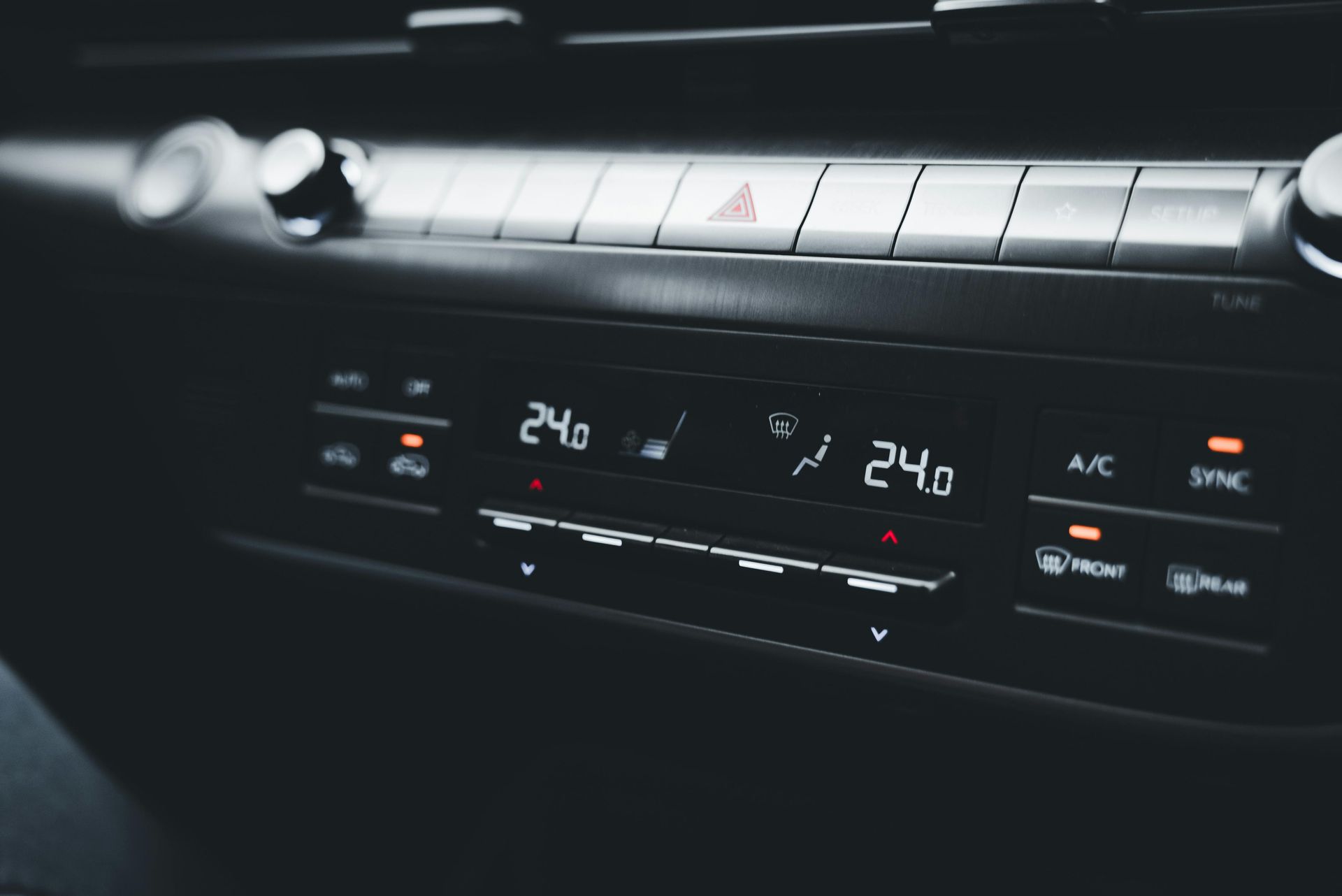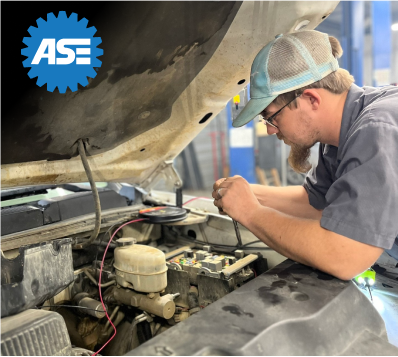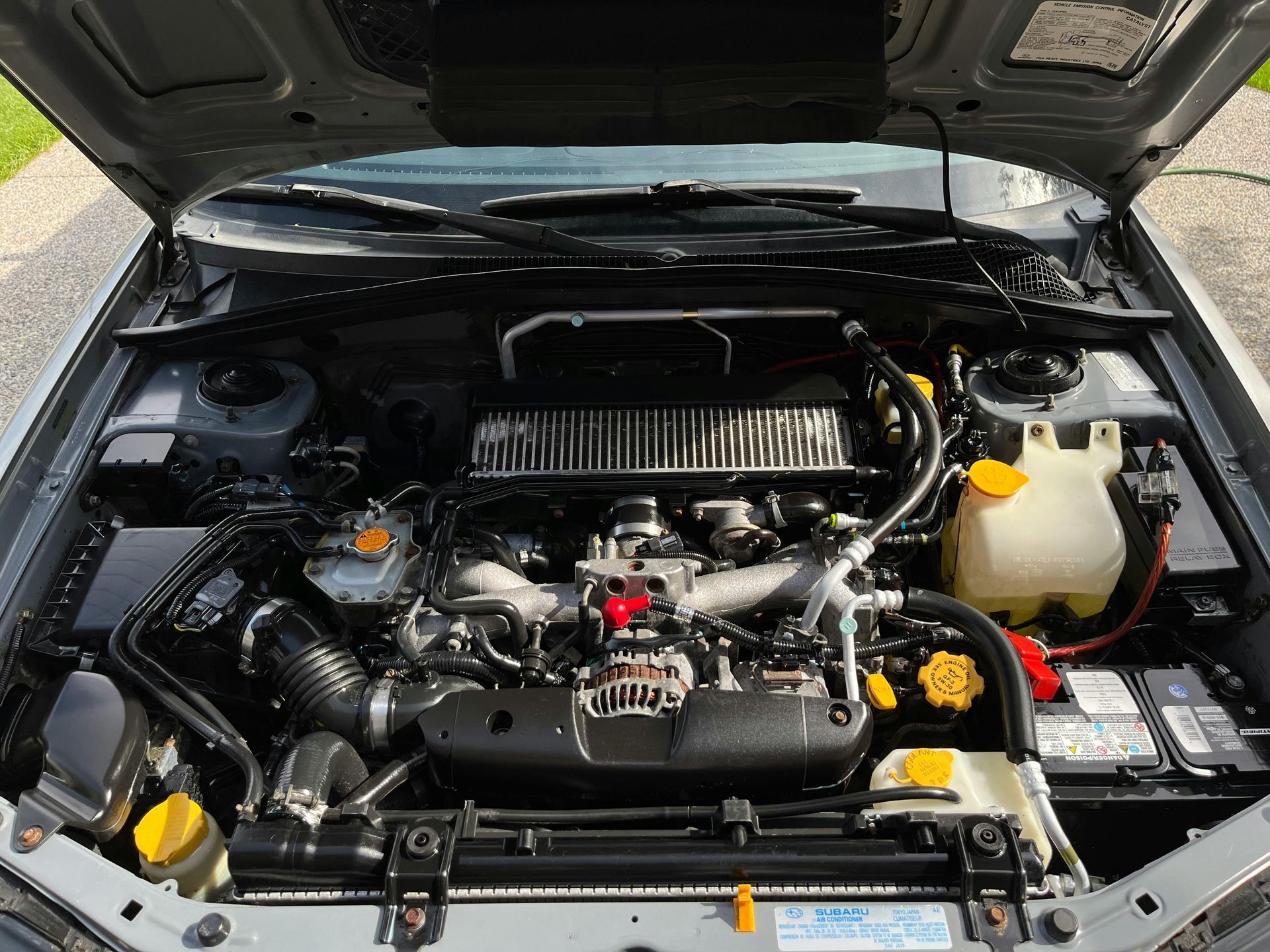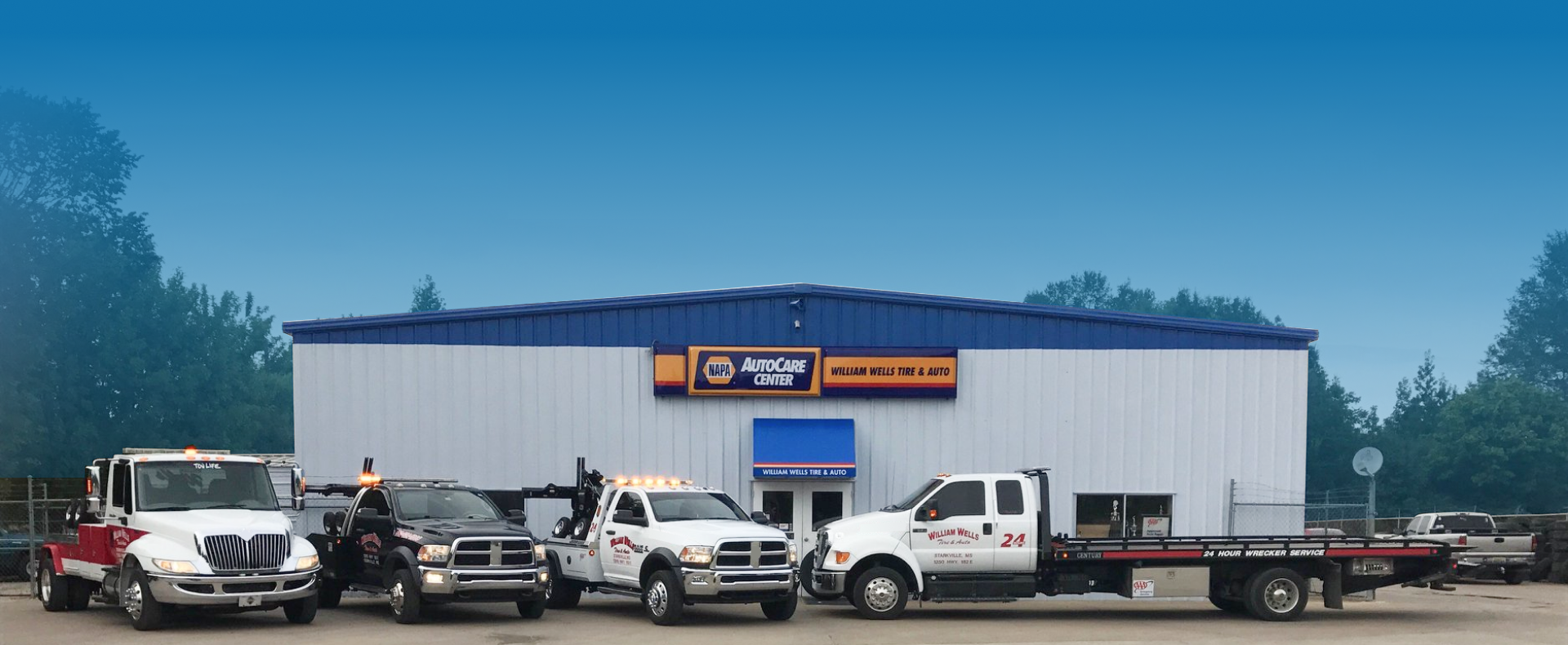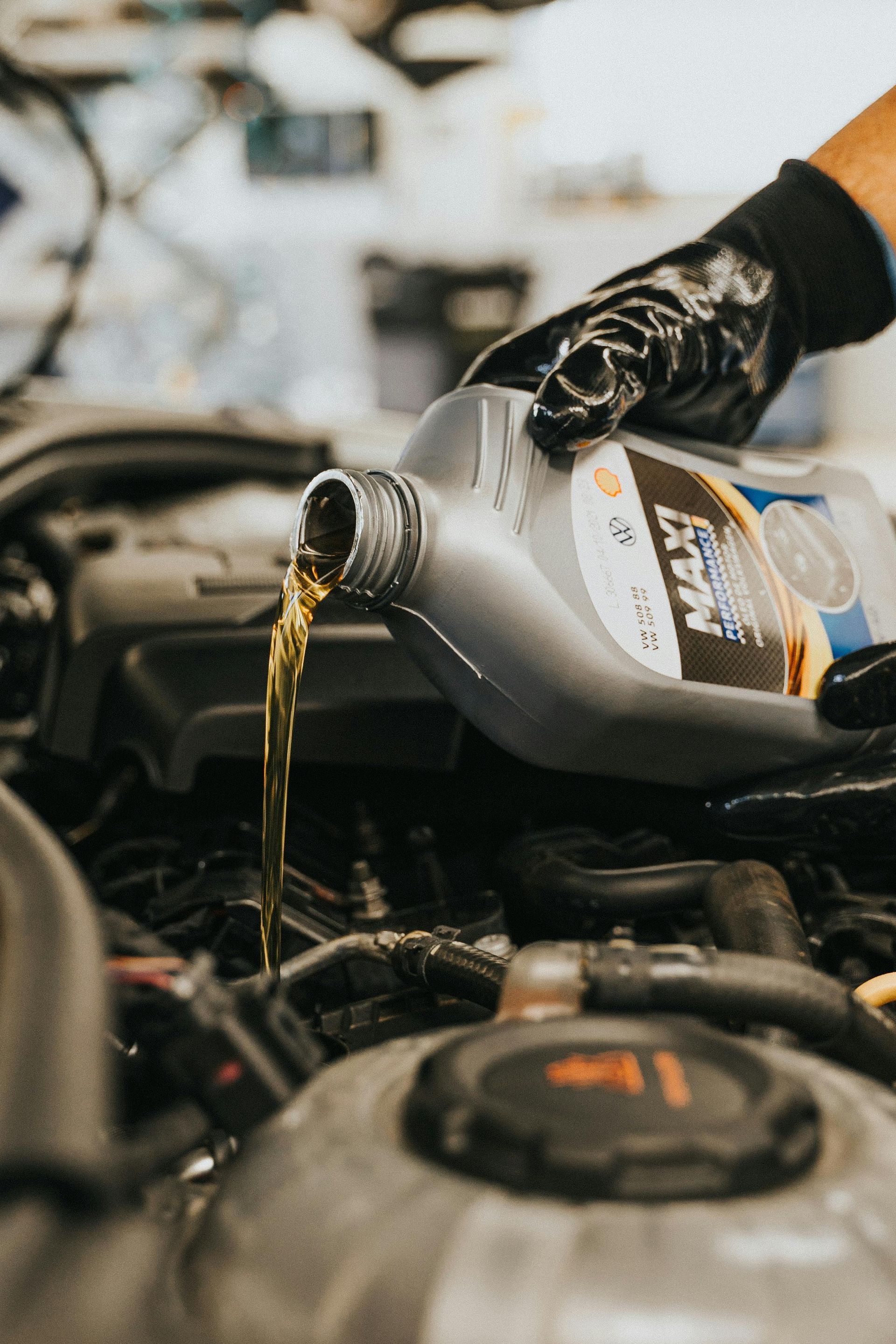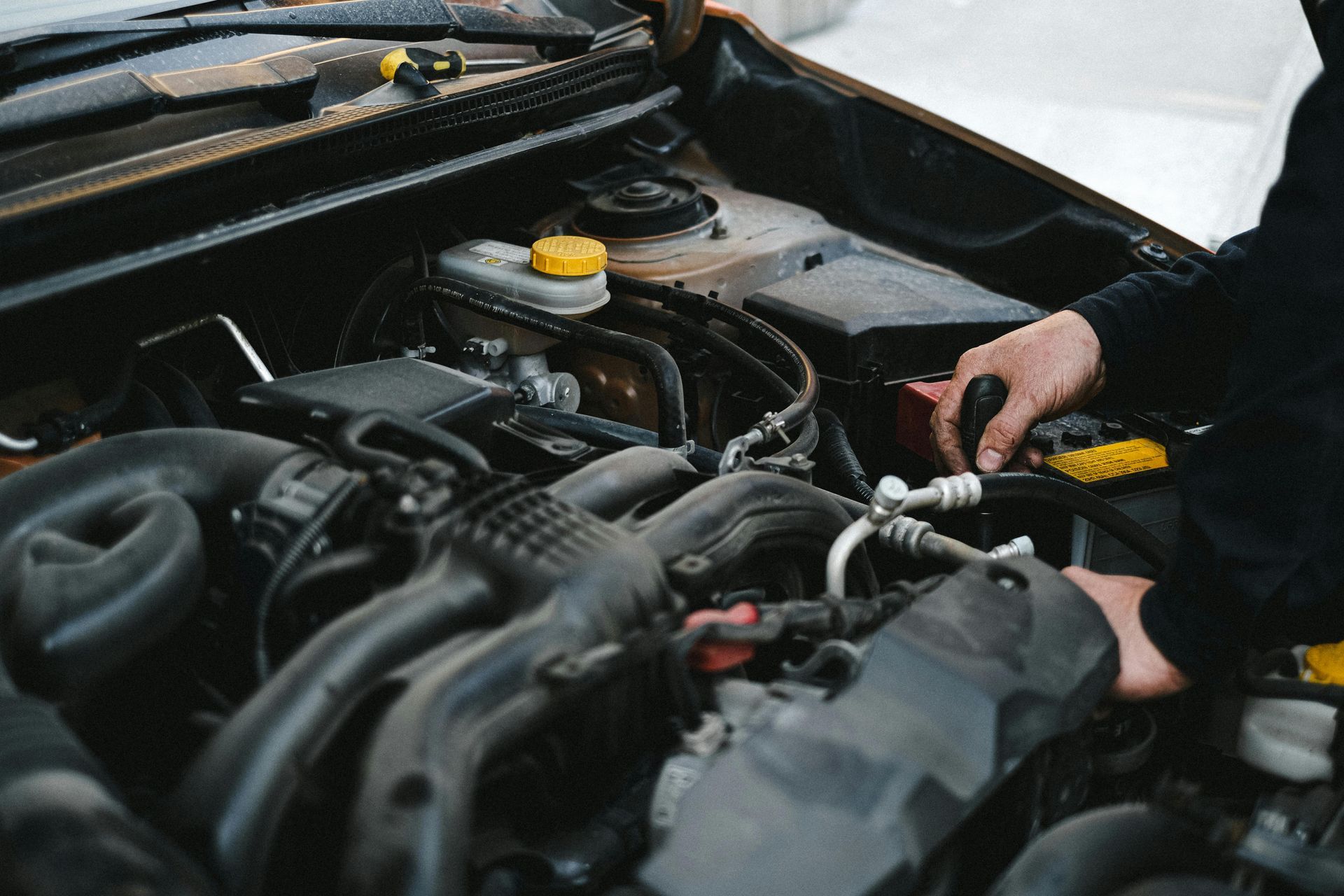Car overheating repair near me
March 3, 2025
Brian Hunnicutt
My car is overheating and I need a repair shop near me

Why Is Your Car Overheating? – Expert Overheating Repair Near Me
An overheating engine can be a major inconvenience and a serious risk to your vehicle's longevity. At William Wells Tire & Auto, with locations in Starkville, Columbus, and West Point, MS, we specialize in diagnosing and fixing cooling system issues to keep your car running efficiently. If you notice your vehicle’s temperature rising above normal levels, it’s crucial to address the issue before it leads to costly engine damage.
Common Causes of Engine Overheating
Your car’s engine is designed to operate within a temperature range of 195 to 220 degrees Fahrenheit. When it exceeds this limit, it can lead to engine failure, warped components, and expensive repairs. Below are the primary reasons your vehicle might be overheating:
1. Low Coolant Levels or Leaks
Coolant, also known as antifreeze, is essential for regulating your engine’s temperature. A leak in the system—whether from the radiator, water pump, hoses, or head gasket—can result in coolant loss and overheating. Signs of a coolant leak include puddles under your vehicle, a sweet odor from the engine bay, or visible steam coming from under the hood.
2. Faulty Thermostat
The thermostat regulates the coolant flow between the radiator and the engine. If it becomes stuck closed, coolant won’t circulate properly, causing the engine to overheat. If it remains open, the engine may not reach optimal operating temperature, which can lead to reduced fuel efficiency.
3. Radiator Issues
The radiator helps dissipate heat from the coolant before it recirculates through the engine. If the radiator is clogged, leaking, or corroded, it won’t effectively cool the engine, leading to overheating.
4. Water Pump Failure
The water pump ensures that coolant moves throughout the engine. If the pump is failing due to a worn impeller, a broken bearing, or internal leaks, coolant won’t circulate effectively, causing the engine to overheat.
5. Broken or Worn Serpentine Belt
The serpentine belt powers multiple components, including the water pump. If the belt snaps or becomes too loose, the pump will stop working, causing a rapid increase in engine temperature.
6. Defective Radiator Fan
The radiator fan helps pull air through the radiator when the vehicle is idling or moving slowly. If the fan motor, relay, or wiring fails, the engine may overheat when the car isn’t moving but stay cool at highway speeds.
7. Blocked Coolant Passages
Over time, contaminants, rust, and scale buildup can clog coolant passages, restricting flow and efficiency. A blocked radiator, heater core, or engine passage can prevent proper cooling and lead to overheating. Routine cooling system flushes can help prevent these blockages.
8. Low Engine Oil Levels
Engine oil is not only responsible for lubrication but also helps absorb heat. Low oil levels increase friction and heat buildup, overburdening the cooling system and increasing the risk of overheating.
9. Blown Head Gasket
A blown head gasket can allow coolant to leak into the engine cylinders or let combustion gases enter the cooling system, leading to overheating. Symptoms include white smoke from the exhaust, bubbling in the radiator, and unexplained coolant loss.
Signs Your Car Is Overheating
Recognizing overheating symptoms early can prevent major engine damage. Be on the lookout for:
- Temperature gauge rising into the red zone
- Steam or smoke coming from the engine bay
- Knocking or ticking sounds from the engine
- Coolant leaks under the vehicle
- Sudden loss of engine power or stalling
- Check engine light or overheating warning indicator
What to Do If Your Car Overheats
If your engine starts to overheat, take immediate action:
- Pull Over Safely – Continuing to drive with an overheating engine can lead to severe damage.
- Turn Off the Engine – This prevents further heat buildup.
- Let It Cool Down – Never open the radiator cap while the engine is hot, as pressurized coolant can cause serious burns.
- Check Coolant Levels – If coolant is low and you have extra, carefully refill the reservoir.
- Inspect for Leaks – Look under the car for any coolant leaks.
- Call a Professional – Continuing to drive with overheating issues can cause catastrophic engine failure. Have your vehicle inspected at William Wells Tire & Auto before driving further.
Preventative Maintenance to Avoid Overheating Issues
Routine maintenance is the best way to avoid costly overheating-related repairs. Follow these steps to keep your cooling system in top condition:
- Check coolant levels regularly and top off as needed.
- Inspect hoses and belts for signs of wear, cracks, or leaks.
- Flush the cooling system as recommended by your vehicle manufacturer.
- Monitor the temperature gauge while driving.
- Schedule regular cooling system inspections at William Wells Tire & Auto.
Trust William Wells Tire & Auto for Expert Cooling System Repairs
At William Wells Tire & Auto, our ASE-certified technicians have extensive experience diagnosing and repairing overheating problems. Whether your vehicle needs a coolant flush, thermostat replacement, radiator repair, or a new water pump, we provide high-quality service to keep your engine running at the proper temperature.
Don’t wait until your engine overheats—schedule a cooling system inspection today! Visit one of our three locations:
- 12919 MS-182, Starkville, MS 39759 – Call (662) 268-4081
- 1625 Gardner Blvd, Columbus, MS 39702 – Call (662) 240-2414
- 93 W Broad St, West Point, MS 39773 – Call (662) 495-8558
Learn more about our services at williamwellstireandautorepair.com.
At William Wells Tire & Auto, we are dedicated to keeping your car cool, reliable, and performing at its best!
Please watch the video by following the link for more information.
Loading ...
Missing business hours data / Error occurred while getting the data.
Having Trouble
Finding Us?
Loading ...
Missing business hours data / Error occurred while getting the data.
Loading ...
Missing business hours data / Error occurred while getting the data.

